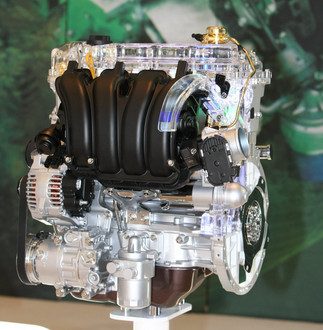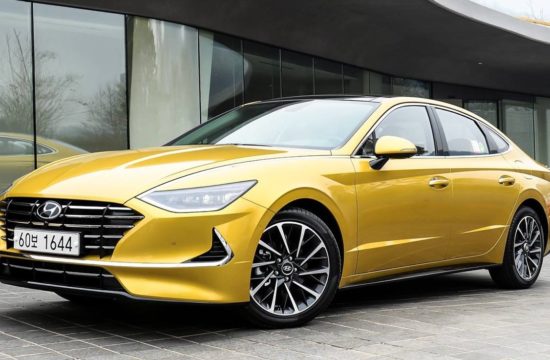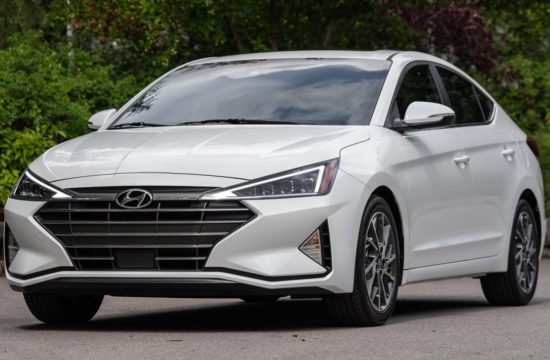
As you now Hyundai has literally revolutionized the new generation of the Sonata sedan which will be unveiled next year as a 2011 model. Everything about it is new and better, it’s got new design, new interior, new equipments and now an all-new engine! It’s the 2.4 Theta II GDI four-cylinder which is the company’s first ever direct-injection gasoline engine and develops 201ps@6300rpm and 25.5kg.m@4250rpm. The Theta II will probably replace the current V6 engine in the range.
Being a Direct Injection, the Theta II GDI is supposed to be cleaner and more economical than the regular engines. After all it’s developed with a budget of 170 billion over a 46 month-long research period! Here’s its concept in essence:
The injection is split into two phases to achieve optimum combustion: in the first phase, the pilot injection and ignition trigger the piston’s downward power stroke. Then, in the main injection phase, during the piston’s descent, more fuel is injected and is ignited. This split-injection technique reduces loading on the catalytic converter and helps lower emissions. This is particularly beneficial during cold starts when emissions are highest because the catalyst has not reached its optimal operating temperature. Split-injection enables the catalytic converter to reach the optimal operating temperature faster thus reducing emissions by 25 percent during cold starts and meet’s California Air Resources Board’s ULEV-2 and PZEV standards.
GDI’s other benefits include improved dynamic performance and better gas mileage. Compared to a conventional engine of the same displacement, GDI delivers 7 percent more torque at low revolutions and 12 percent more torque at the high-end for better take-off and overtaking performance. And perhaps best of all, a vehicle equipped with a GDI engine will get about 10 percent better mileage than a vehicle equipped with a conventional multi-point fuel injected engine. Precise mileage figures will be announced when retail sales begin.
Some of the new technologies used in this power plant include the new three-stage variable induction system (VIS) and Dual Continuously Variable Valve Timing (DCVVT).







